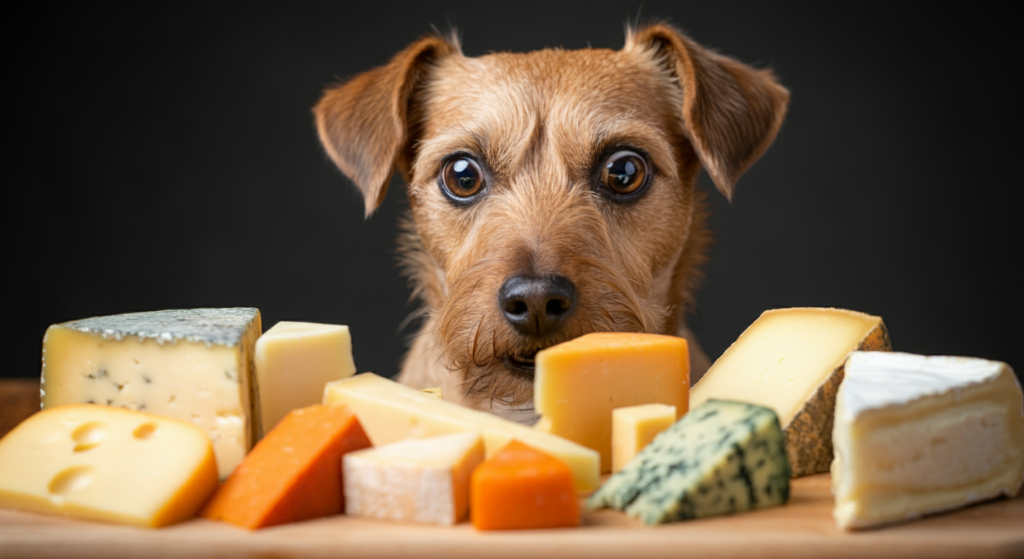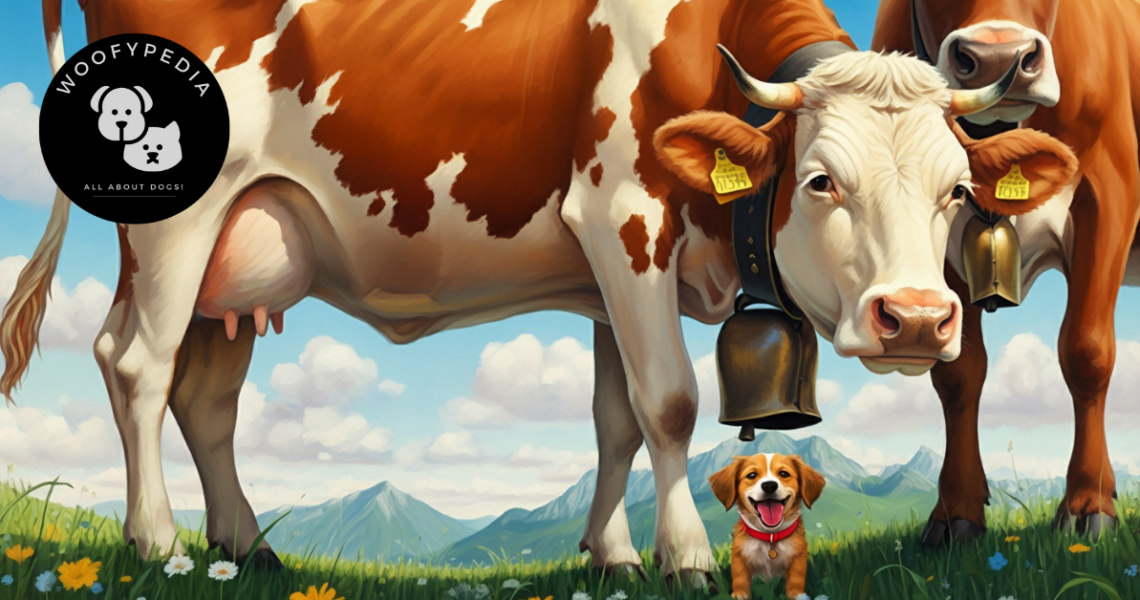Can dogs eat Cheese?
Can Dogs Eat Cheese? A Guide to Safe Snacking for Your Pup
When it comes to feeding our dogs, knowing what’s safe and healthy is a top priority. Cheese, a beloved treat for humans, often raises questions about whether it’s suitable for dogs. While it’s packed with flavour and nutrients for us, is it a safe choice for your furry companion? Understanding the potential benefits and risks of cheese can help you decide whether to include it as an occasional treat in your dog’s diet.
Yes, dogs can eat cheese, but only under specific conditions. When served plain and in moderation, cheese is safe for most dogs and may even provide some health benefits. However, not all cheeses are dog-friendly. Factors like lactose content, salt levels, and added ingredients are important to consider when deciding whether to offer this treat to your pet. Let’s dive deeper to ensure you’re making the best choice for your dog’s health.
Table of Contents
- Can Dogs Eat Cheese? A Guide to Safe Snacking for Your Pup
- What Is Cheese?
- Can Dogs Eat Cheese?
- What Are the Benefits of Cheese for Dogs?
- Are Cheeses Bad for Dogs?
- What Are the Dangers of Dogs Eating Cheese?
- Final Thoughts:
- How Much Cheese Can Dogs Eat?
- Fun Facts About Dogs and Cheese
- Conclusion
- FAQ: Can Dogs Eat Cheese?

What Is Cheese?
Cheese is a dairy product made from the curdled milk of cows, goats, sheep, or other mammals. It comes in an astonishing variety of types, textures, and flavours. The production process often involves adding salt, cultures, or flavourings, which can impact whether a particular cheese is safe for dogs.
In human cuisine, cheese is often seasoned, smoked, or combined with other ingredients. While these additions enhance flavour for humans, they may introduce substances that are harmful to dogs, such as excessive sodium or toxic additives. Understanding these differences is crucial before sharing cheese with your pet.
Can Dogs Eat Cheese?
The simple answer is yes, dogs can eat cheese, but only in moderation and under certain conditions. Plain cheese can provide health benefits, as it’s rich in protein, calcium, and healthy fats. However, not all cheeses are suitable for dogs. For instance:
- Can dogs eat cheddar cheese? Yes, in small amounts, as it’s relatively low in lactose.
- Can dogs eat blue cheese? No, as it contains moulds that are toxic to dogs.
What Are the Benefits of Cheese for Dogs?
Cheese, when prepared correctly and offered in moderation, can provide certain benefits to your dog. While not essential to a dog’s diet, it contains nutrients and compounds that may support your pet’s overall health. Here are some potential benefits of cheese for dogs:
- Rich in Protein
Cheese is a good source of protein, which is essential for muscle development and repair. Adding small amounts of cheese to your dog’s diet can help supplement their protein intake. - Contains Calcium
Calcium supports strong bones and teeth, making cheese a beneficial occasional treat, especially for growing puppies or senior dogs needing bone support. - Packed with Healthy Fats
Cheese contains fats that can provide your dog with energy and support coat health. However, these should be consumed in moderation to avoid weight gain. - Vitamin Boost
Certain cheeses provide essential vitamins such as:
- Vitamin A: Supports vision and immune function.
- Vitamin B12: Aids in nerve function and red blood cell production.
- Palatability for Training
The strong smell and taste of cheese make it an excellent high-value treat for training purposes. A small piece can be a great motivator during obedience sessions.
Are Cheeses Bad for Dogs?
In moderation, cheese is not bad for dogs. However, excessive consumption or the wrong type of cheese can lead to health problems. Here’s what to watch out for:
- High Fat Content: Overindulgence can cause weight gain or even pancreatitis, a serious condition in dogs.
- Lactose Sensitivity: Many dogs are lactose intolerant, and too much cheese can lead to digestive upset, including diarrhoea or vomiting.
- Sodium Levels: Processed cheeses often contain high levels of salt, which can be harmful in large amounts.

What Are the Dangers of Dogs Eating Cheese?
While cheese can offer some benefits, it also comes with potential risks that every pet owner should understand before sharing this treat with their furry friend. Here are the key dangers associated with dogs eating cheese:
- Lactose Intolerance
Many dogs lack the enzyme needed to break down lactose, the sugar found in dairy products. Symptoms of lactose intolerance include:
- Diarrhoea
- Gas
- Bloating or abdominal discomfort Tip: Start with small amounts to see how your dog reacts.
- High Fat Content
Some cheeses, like brie or cheddar, are high in fat. While fats provide energy, excessive consumption can lead to:
- Obesity
- Pancreatitis Tip: Opt for low-fat cheese varieties, such as mozzarella.
- Salt and Additives
Many cheeses are high in sodium or contain ingredients toxic to dogs, such as:
- Garlic or Onions: Found in some flavoured cheeses, these are toxic to dogs.
- Herbs or Spices: Ingredients like chives can be harmful. Tip: Always choose plain, unsalted cheese.
- Mould in Certain Cheeses
Blue cheeses, such as stilton or roquefort, contain moulds that produce toxins dangerous to dogs. Even a small amount can cause severe reactions, such as vomiting, tremors, or seizures. Tip: Avoid blue cheeses entirely. - Caloric Content
Cheese is calorie-dense, and regular consumption can lead to weight gain. Even small pieces should be considered part of your dog’s overall daily calorie intake.
Final Thoughts:
While cheese is not toxic to dogs, it’s important to serve it with care. Always choose plain, low-fat, and low-sodium options, and avoid blue cheeses or those with harmful additives. Moderation and portion control are key. If your dog accidentally consumes a large quantity or a potentially harmful type of cheese, contact your veterinarian for advice.
How Much Cheese Can Dogs Eat?
Portion control is crucial when feeding cheese to dogs. A small dog may only tolerate a tiny piece, while larger breeds might handle a slightly bigger portion. Monitor your dog for any signs of digestive upset or allergic reactions when introducing cheese into their diet.
Fun Facts About Dogs and Cheese
- Dogs love the smell and taste of cheese, making it a popular choice for disguising medications.
- Some dog-friendly recipes use cheese as a key ingredient for treats.
- Did you know? Lactose intolerance varies by breed and individual dog. Some dogs handle cheese better than others.
Conclusion
So, can dogs eat cheese? The answer is yes—with precautions. Always choose plain, low-fat options and serve cheese in moderation. Avoid blue cheeses, high-fat varieties, or those with harmful additives. Consult your vet if you’re unsure or if your dog shows signs of intolerance. Remember, your dog’s health and happiness come first. Have you tried giving your dog cheese? Share your experience below!

Here’s an extensive FAQ related to “Can Dogs Eat Cheese?” with a wide range of questions:
FAQ: Can Dogs Eat Cheese?
1. Is cheese safe for dogs to eat?
Yes, in moderation, cheese is safe for most dogs. However, some dogs may have lactose intolerance or health conditions that make cheese unsuitable for them.
2. Which types of cheese are unsafe for dogs?
Cheeses that are high in fat, salt, or contain harmful additives like onion, garlic, or blue cheese mould (like Roquefort) should be avoided. Blue cheese, in particular, can produce toxins that are harmful to dogs.
3. Can dogs eat cheddar cheese?
Yes, cheddar cheese is generally safe in small amounts. It is lower in lactose compared to some other cheeses, making it a better option for dogs who are sensitive to lactose.
4. What happens if a dog eats too much cheese?
Eating too much cheese can lead to upset stomachs, diarrhoea, or vomiting. Long-term overconsumption may result in obesity or pancreatitis due to the high fat content.
5. Can dogs eat mozzarella cheese?
Yes, low-fat mozzarella cheese can be a safer option for dogs. It is often used in small amounts as a training treat.
6. Is cheese good for dogs?
Cheese can be a good source of calcium, protein, and vitamins like A and B12. However, it should only be given as an occasional treat and not as a dietary staple.
7. Is cheese bad for dogs?
Cheese can be bad for dogs if they are lactose intolerant, overweight, or have specific health issues like kidney problems or pancreatitis. Always consult your vet if in doubt.
8. Can dogs eat cream cheese?
Yes, plain cream cheese in small amounts is generally safe. Avoid flavoured varieties that may contain harmful ingredients like garlic or onions.
9. Can dogs eat cottage cheese?
Yes, plain, low-fat cottage cheese is a good option as it is lower in lactose and fat compared to many other cheeses.
10. Can puppies eat cheese?
Puppies can eat cheese, but only in small amounts and occasionally. Monitor for any signs of lactose intolerance, as puppies are still developing their digestive systems.
11. Can dogs eat Babybel cheese?
Yes, dogs can eat Babybel cheese in small amounts. Ensure you remove the wax coating and feed only the cheese.
12. Can dogs eat cheese every day?
No, cheese should not be given to dogs every day. It is a treat and should only make up 10% or less of their daily caloric intake.
13. Can dogs eat cheese pizza?
Cheese pizza is not recommended for dogs due to its high fat, salt, and potential harmful toppings like garlic or onion.
14. Can cheese be used for training dogs?
Yes, cheese is an excellent high-value reward for training sessions. Cut it into small pieces to avoid overfeeding.
15. Why do dogs love cheese so much?
Dogs love cheese because it is rich in fat and has a strong, savoury flavour. Many dogs are attracted to its smell and taste.
16. Can lactose-intolerant dogs eat cheese?
Lactose-intolerant dogs should avoid cheese. Some low-lactose cheeses like cheddar or cottage cheese may be tolerated in tiny amounts, but it’s best to consult your vet.
17. How can I tell if my dog is lactose intolerant?
Signs of lactose intolerance include diarrhoea, gas, bloating, or vomiting after consuming dairy products.
18. Can cheese help with giving medication to dogs?
Yes, cheese is often used to conceal pills or tablets, making it easier for dogs to take their medicine.
19. Should overweight dogs eat cheese?
No, overweight dogs should not eat cheese due to its high fat content. Consider lower-calorie treats instead.
20. Is low-fat cheese better for dogs?
Yes, low-fat cheeses like mozzarella or reduced-fat cheddar are better options for dogs than high-fat varieties.
21. Can cheese cause pancreatitis in dogs?
Yes, high-fat cheeses can trigger pancreatitis in dogs, a painful and serious condition. Avoid giving cheese to dogs with a history of this condition.
22. Can cheese be part of a dog’s diet?
Cheese can be an occasional treat but should not replace a balanced, nutritionally complete dog food.
23. Are there alternatives to cheese for dogs?
Yes, alternatives include plain cooked chicken, carrot sticks, apple slices (without seeds), or commercial low-calorie dog treats.
24. Can dogs eat cheese slices?
Yes, plain cheese slices can be fed in small amounts. Avoid processed cheese products like “cheese food,” which may contain additives.
25. Can cheese upset a dog’s stomach?
Yes, cheese can upset a dog’s stomach if they are lactose intolerant or if they eat too much.
26. Can dogs eat blue cheese?
No, blue cheese is unsafe for dogs. It contains roquefortine C, which can be toxic and cause vomiting, diarrhoea, or even seizures.
27. What should I do if my dog accidentally eats a lot of cheese?
Monitor your dog for symptoms like diarrhoea, vomiting, or lethargy. Contact your vet if symptoms persist or worsen.
28. What is the best cheese for dogs?
Low-fat cheeses like mozzarella, cottage cheese, or plain cheddar are often considered the best options for dogs.
29. Can dogs eat flavoured cheese?
No, avoid flavoured cheeses, especially those containing garlic, onion, chives, or other toxic ingredients.
30. Can cheese cause allergies in dogs?
Yes, some dogs may have allergies to dairy. Signs include itchy skin, ear infections, or gastrointestinal issues.
